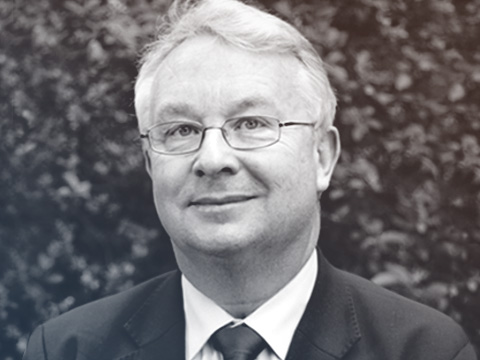
Programme
1er jour de conférence
Jeudi 12 avril
| 8:00–9:00 | Café de bienvenue et inscription |
| 9:00–10:30 | Mots de bienvenue Luca Crivelli (CH) David Goodman (US) Milo Puhan (CH) Pascal Strupler (CH) Séance plénière: Variations régionales en matière de soins de santè Conférenciers principaux: Jonathan Skinner (US) Intervenants: Valérie Paris (FR) Agne Ulyte and Raphaelle Guerbaai (Emerging health care leaders) |
| 10:30–11:00 | Pause café |
| 11:00 –12:30 | Séances parallèles Séance 1: From birth do death Séande 2: Better data to address patients' needs Séance 3: Regional variation to inform policy making Séance 4: Preventive care Séance 5: Improving emergency health care Séance 6: Mental health care |
| 12:30–13:30 | Déjeuner-buffet |
| 13:30–14:30 | Evènement de speed networking par thème de soins de santé Speed date 1-10: Variations régionales en matière de soins de santé Speed date 11-20: Encouragements pour un système de santé plus intelligent Speed date 21-30: Combler l’écart séparant la recherche et la politique en matière de santé Speed date 31-40: Politique de santé en Suisse |
| 14:30–15:00 | Pause café |
| 15:00–17:00 | Séances plénières: «Pitches» et «Ping-Pong» |
| 15:00–15:20 | Trois pitches de scientifiques en début de carrière |
| 15:25–17:00 | Séance plénière «ping-pong»: Encouragements pour un système de santé plus intelligent Conférenciers principaux: Sabina Nuti (IT) Stefan Spycher (CH) Intervenants: Gwyn Bevan (UK) Emiliano Soldini and Kornelia Basinska (Emerging health care leaders) |
| 18:00–22:00 | Programme du dîner-conférence |
2e jour de conférence
Vendredi 13 avril
Parallel sessions
All presentations of the parallel sessions are downloadable as PDF by clicking on abstract title.
Thursday, April 12
11:00–12:30
From birth to death
Chair: Maria Wertli
Invited speakers: Thérèse Stukel and Femke Atsma
| 1 | 11:00– 11:15 |
Thérèse Stukel (invited speaker) |
Who are the high cost, high need patients? |
| 2 | 11:15– 11:30 |
Femke Atsma (invited speaker) |
|
| 3 | 11:30– 11:45 |
Mark Adams | Use of evidence based practices affects outcome and difference between Swiss and US neonatal units |
| 4 | 11:45– 12:00 |
David Goodman | Relationship between neonatal care intensity and outcomes across Texas hospitals |
| 5 | 12:00– 12:15 |
Oliver Gruebner | Geographic clusters of high use of preoperative chest radiography in Switzerland |
| 6 | 12:15– 12:30 |
Caroline Baehler | Regional differences in the intensity of treatment at the end-of-life |
Better data to address patients' needs
Chair: Thomas Rosemann
| 1 | 11:00– 11:15 |
Urs Johannes Mueller | Patient centered outcome registry (PCOR) |
| 2 | 11:15– 11:30 |
Stefanie Bachnick | Patient-centered care, nurse work environment and rationing of nursing care in Swiss acute care hospitals |
| 3 | 11:30– 11:45 |
Florian Liberatore | Ancient wisdom in organizational learning – Challenges in the development of a sensitive and informative patient satisfaction measure in elderly home care settings |
| 4 | 11:45– 12:00 |
Vasileios Nittas | Electronic patient-generated health data – A conceptual framework and its potential application to the Swiss health care context 3 |
| 5 | 12:00– 12:15 |
Laure Dutoit | HomeCareData: a new database for long-term care planning |
| 6 | 12:15– 12:30 |
Regional variation to inform policy making
Chair: Thomas Zeltner
Invited Speaker: Catherine Gerard
Discussant: Bea Heim
| 1 | 11:00– 11:15 |
Catherine Gerard (invited speaker) |
From atlases to action: reducing unwarranted variation in New Zealand |
| 2 | 11:15– 11:45 |
Barthold Vonen | From health care atlas to policy and governance towards reduced variations |
| 3 | 11:30– 11:45 |
Barthold Vonen | From health care atlas to policy and governance towards reduced variations |
| 4 | 11:45– 12:00 |
Reto Joerg | A GIS based model to detect regional differences in health care supply structures |
| 5 | 12:00– 12:15 |
Jan Fehr | Ending the HIV-Epidemic – The SwissPrEPared program |
| 6 | 12:15– 12:30 |
Preventive care
Chair: Arnaud Chiolero
| 1 | 11:00– 11:15 |
Maurane Riesen | Exploring variation in human papillomavirus vaccination uptake in Switzerland: A multi-level spatial analysis of a national vaccination coverage survey |
| 2 | 11:15– 11:30 |
Daniela Anker | Screening for and treatment of hypertension among older adults: less is more? A critical review of evidence |
| 3 | 11:30– 11:45 |
Emanuele Prati | Colorectal cancer testing in Swiss primary care practices: A cross-sectional study in the Sentinella Network |
| 4 | 11:45– 12:00 |
Yonas Martin | Colorectal cancer screening practices in Swiss primary care: Variation in care between physicians reporting for the Sentinella Network |
| 5 | 12:00– 12:15 |
Phung Lang | Evaluation of the school vaccination programs in Switzerland, 2005-2016 |
| 6 | 12:15– 12:30 |
Improving emergency health care
Chair: Peter Suter
Invited Speaker: Arnaud Perrier
| 1 | 11:00– 11:15 |
Arnaud Perrier (invited speaker) |
Improving emergency health care in an ageing population |
| 2 | 11:15– 11:30 |
Ksenija Slankamenac | Need for early identification of palliative patients in the emergencydepartment to decide best supportive strategies |
| 3 | 11:30– 11:45 |
Jean Odermatt | How can evidence based interior design contribute to the process of getting better (salutogenesis)? |
| 4 | 11:45– 12:00 |
Jean Odermatt | How can evidence based interior design contribute to the process of getting better (salutogenesis)? |
| 5 | 12:00– 12:15 |
Dominik von Stillfried | How many are a crowd? Why health policy needs to take a closer look at crowding in emergency departments |
| 6 | 12:15– 12:30 |
Mental health care
Chair: Emiliano Albanese
| 1 | 11:00– 11:15 |
Markus Wolf | Improving care for patients with depressive and anxiety disorders |
| 2 | 11:15– 11:30 |
Markus Wolf | Improving care for patients with depressive and anxiety disorders |
| 3 | 11:30– 11:45 |
Mandy Schulz | Mild cognitive impairment as a pre-dementia stage - Analysis of German nationwide claims data |
| 4 | 11:45– 12:00 |
Amélie Rouche | |
| 5 | 12:00– 12:15 |
||
| 6 | 12:15– 12:30 |
Friday, April 13
11:00–12:30
Public health surveillance (DE/FR session)
Chair: Marcel Widmer
Invited Speaker: Michael Jordi
| 1 | 11:00– 11:15 |
Michael Jordi (invited speaker) |
Regionale Unterschiede in der Gesundheitsversorgung |
| 2 | 11:15– 11:30 |
Marcel Zwahlen | The Swiss health care atlas - the first generic prototype |
| 3 | 11:30– 11:45 |
Nathalie Wellens | Bridging care institutions through a common language |
| 4 | 11:45– 12:00 |
Joerg Baetzing | Ein neuer Index zur Darstellung der Versorgungsbeziehung ambulantstationär auf Kreisebene in Deutschland: Der Sektorenindex (SIX) |
| 5 | 12:00– 12:15 |
Ramona Hering | Kleinräumige Gesundheitsberichterstattung als Planungsgrundlage für gesundheitliche Präventionsmassnahmen in Düsseldorf |
| 6 | 12:15– 12:30 |
Over-use and under-use
Chair: Roger von Moos
| 1 | 11:00– 11:15 |
Roberto Grilli | Overuse in cancer care. A review of European studies |
| 2 | 11:15– 11:30 |
Leander Muheim | Potential overuse and medical costs of proton pump inhibitors inSwitzerland: A claims data based observational study |
| 3 | 11:30– 11:45 |
Helene Aschmann | How individualized quantitative benefit harm assessments can inform preference-sensitive guidelines |
| 4 | 11:45– 12:00 |
Marco Kaufmann | Participants from the Swiss Multiple Sclerosis Registry (SMSR) who are not under regular medical care: Is there evidence for underuse? |
| 5 | 12:00– 12:15 |
Elisa Haller | Antidepressant prescription practices in the Swiss health care system |
| 6 | 12:15– 12:30 |
Kim Youngran | Decomposing regional variation in publicly funded newborn care |
Health care planning
Chair: Stefan Boes
Invited Speaker: Marina Davoli
| 1 | 11:00– 11:15 |
Marina Davoli (invited speaker) |
Regional outcome evaluation program (P.Re.Val.E.): reduction of inequality in access to effective health care in the Lazio region of Italy (2012‐2015) |
| 2 | 11:15– 11:30 |
Ulrich Wagner | Regional health care cata in the federated health care policy system of Switzerland – a bright or dooming future? |
| 3 | 11:30– 11:45 |
Malena Haenni Emmenegger | Still not expensive enough? - Non-economic considerations and intercantonal cooperation in the Swiss hospital sector |
| 4 | 11:45– 12:00 |
André Moser | Evaluation of the Basel hospital merger project in Switzerland |
| 5 | 12:00– 12:15 |
Justus Gallati | Simulation model for a needs‐based health care planning in Switzerland: the example of coronary heart disease |
| 6 | 12:15– 12:30 |
The cantonal and federal perspective (DE/FR session)
Chair: Morten Keller
Invited speakers: Hans Stöckli and Christoph Bosshard
| 1 | 11:00– 11:15 |
Hans Stöckli (invited speaker) |
|
| 2 | 11:15– 11:30 |
Christoph Bosshard (invited speaker) |
Health policy in Switzerland – Position der FMH |
| 3 | 11:30– 11:45 |
Christine Cohidon | Développement d’un modèle de coordination des soins en médecine de familleadapté au contexte du canton de Vaud, Suisse |
| 4 | 11:45– 12:00 |
Jonas Willisegger / Hannes Blatter | Tarifverhandlungen im Schweizer Gesundheitswesen |
| 5 | 12:00– 12:15 |
Lea Sgier | Die Demenzdiagnose zwischen Gesundheits- und Sozialpolitik |
| 6 | 12:15– 12:30 |
Analysis from administrative data bases
Chair: Nino Künzli
| 1 | 11:00– 11:15 |
Marion Schmidt | Asthma and COPD in Switzerland: Prevalence and direct medical costs according to health insurance claims data and a large population survey |
| 2 | 11:15– 11:30 |
Maria Fantini | Inter‐regional variation in opioid prescription patterns in Emilia‐Romagna and Tuscany |
| 3 | 11:30– 11:45 |
Humza Malik | Variation in the adoption of index laparoscopic cholecystectomy for acute cholecystitis and gallstone pancreatitis in the UK |
| 4 | 11:45– 12:00 |
Marc Hoeglinger | Variation in the role of primary care physicians in trauma care |
| 5 | 12:00– 12:15 |
Agne Ulyte | Systematic selection of indicators for healthcare service utilization research with claims data: a model example of diabetes mellitus in Switzerland |
| 6 | 12:15– 12:30 |
Planning the health care professional workforce
Chair: Ryan Tandjung
| 1 | 11:00– 11:15 |
Boris Kaiser | Physician retirement, practice closures and discontinuity of primary care - What are the causal impacts on patients? |
| 2 | 11:15– 11:30 |
Stefan Gysin | Interprofessional collaboration and the role of nurse practitioners in Swiss primary care ‐ How to collect and analyze relevant data |
| 3 | 11:30– 11:45 |
Sarah N. Musy | Explore variations in daily nurse‐to‐patient ratio over one year for six different units |
| 4 | 11:45– 12:00 |
Daniel Adrian Lungu | Working on avoidable variation among performance of Italian teaching hospitals: what is the role of the research activity? |
| 5 | 12:00– 12:15 |
Peter Bates | Creating a certificate in health care improvement for inter-professional teams to improve health care delivery and reduce variation |
| 6 | 12:15– 12:30 |
13:30–15:00
International perspectives
Chair: Milo Puhan
Invited speaker: Jack Wennberg
| 1 | 13:30– 13:45 |
David Goodman (invited speaker) |
On the overuse of U.S. acute care hospitals in managing chronic illness |
| 2 | 13:45– 14:00 |
Wenjia Wei | Variation of preoperative chest radiography utilization in Switzerland and its influencing factors: a multilevel study with claims data |
| 3 | 14:00– 14:15 |
Chiara Seghieri | Variation of deep vein thrombosis (DVT) and pulmonary embolism (PE) following orthopaedic surgery in Emilia‐Romagna and Tuscany |
| 4 | 14:15– 14:30 |
Maria M. Wertli | Regional variation in hip and knee replacements in Switzerland: a small areavariation analysis |
| 5 | 14:30– 14:45 |
Joachim Marti | Geographic and socioeconomic variation in breast cancer treatment in Scotland: an empirical analysis using linked patient‐level data |
| 6 | 14:45– 15:00 |
Integrated care
Chair: Ulrich Wagner
Invited speakers: Isabelle Peytremann Bridevaux
| 1 | 13:30– 13:45 |
Isabelle Peytremann Bridevaux (invited speaker) |
Integrated care: moving beyond standard evaluations to bridge the gap between evidence and policy? |
| 2 | 13:45– 14:00 |
Stuart McLennan | The spectrum of ethical issues in a learning health care system: asystematic qualitative review |
| 3 | 14:00– 14:15 |
Emily Reeves | Palliative care networks in Switzerland. A regional comparison |
| 4 | 14:15– 14:30 |
Troels Kristensen | Point-of-care testing of HbA1c in Type 2 diabetes care in general practice and the effect on hospital outpatient visits and inpatient admissions related to diabetes care: Evidence from a natural experiment in Danish general practice |
| 5 | 14:30– 14:45 |
||
| 6 | 14:45– 15:00 |
Health policy and politics
Chair: Rolf Marti
Invited speakers: Valérie Paris and Guenther Fink
| 1 | 13:30– 13:45 |
Valérie Paris (invited speaker) |
103 |
| 2 | 13:45– 14:00 |
Guenther Fink (invited speaker) |
Integrating early childhood development programs into the health sector ‐ evidence from Sao Paulo’s western region |
| 3 | 14:00– 14:15 |
Gwyn Bevan | Why does a cost‐effective behavioural change programme have a negligible impact on the projected epidemic of type 2 diabetes? |
| 4 | 14:15– 14:30 |
Phung Lang | Association between measles vaccine refusal during the period 2005‐2016 and the popular voting on the revision of the Epidemics Act in 2013 in Switzerland |
| 5 | 14:30– 14:45 |
Rosemarie James | Public health services and universal health coverage: An unbalanced relationship |
| 6 | 14:45– 15:00 |
Patient-sharing networks - a new concept to support outcome-oriented health policy interventions?
Chair: Dominik von Stillfried
| 1 | 13:30– 13:40 |
Dominik von Stillfried | Patient-sharing networks – a new concept to link research and health policy |
| 2 | 13:40– 13:55 |
Thomas Czihal | Applying social network analysis to ambulatory care in Germany |
| 3 | 13:55– 14:10 |
James O'Malley | Social network analysis and beyond - tools to identify cooperation of providers |
| 4 | 14:10– 14:20 |
Alessandro Lomi | Inter-Hospital patient referral networks: What do we know and what we would like to know? |
| 5 | 14:20– 14:40 |
Jonathan Skinner | The elusive link between health care spending and health outcomes |
| 6 | 14:40– 14:50 |
Therese Stukel | Driving improvements in chronic care in Ontario? |
| 7 | 14:50– 15:00 |
Leonie Sundmacher / Ronja Flemming | Using networks to reduce avoidable hospitalizations in 4 German regions? |
Elderly care
Chair: Samia Hurst
| 1 | 13:30– 13:45 |
Kornelia Basinska | Stakeholders rating components of a newly developed Swiss nurse-led care model: Modified RAND/ UCLA appropriateness method |
| 2 | 13:45– 14:00 |
Katharina Jungo | A primary care‐based survey to assess barriers and enablers to the willingness to deprescribe in older patients with multimorbidity and polypharmacy and their general practitioners’: The LESS study |
| 3 | 14:00– 14:15 |
Rahel Schneider | Prescription patterns, polypharmacy and potentially inappropriatemedication in Swiss nursing homes: A descriptive analysis based onclaims data |
| 4 | 14:15– 14:30 |
Franziska Zuniga | Preventable hospitalizations from Swiss nursing homes: analysis of Swiss discharge data |
| 5 | 14:30– 14:45 |
Nicolas Carvalho | Gender difference on long‐term care arrangements: an older citizen study in Switzerland |
| 6 | 14:45– 15:00 |
Conférenciers et Intervenants
Pour en apprendre plus sur les conférenciers et les intervenants veuillez cliquer sur les images.
Speed Networking
Faire la connaissance d’un grand nombre de personnes différentes et intéressantes dans un court laps de temps. Le 12 avril, nous offrons un évènement de speed networking d’une heure, divisé en quatre thèmes de soins de santé:
- Variations régionales en matière de soins de santé;
- Encouragements pour un système de santé plus intelligent;
- Combler l’écart séparant la recherche et la politique en matière de santé;
- Politique de santé en Suisse.
Le speed network vous offre la possibilité de rencontrer des professionnels, des scientifiques et des décideurs politiques témoignant du même intérêt pour ces thèmes, approches et questions. Des informations supplémentaires concernant la séance de speed networking suivront ces prochains mois.

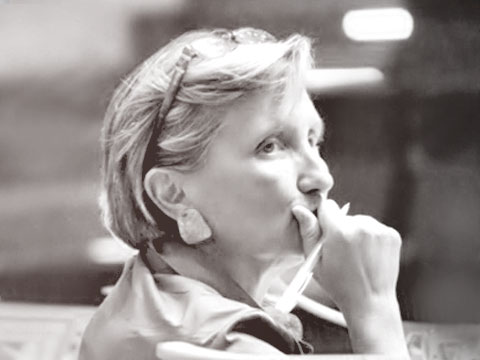
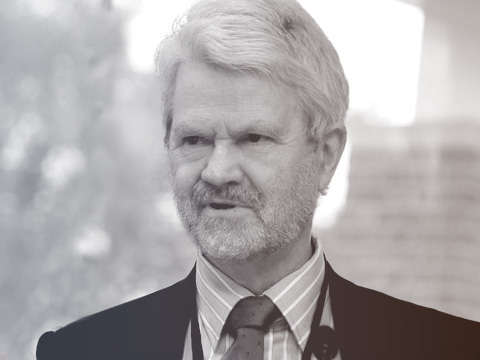

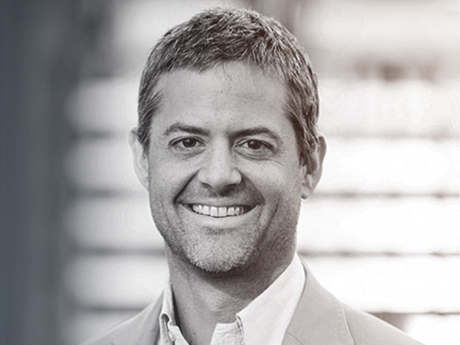
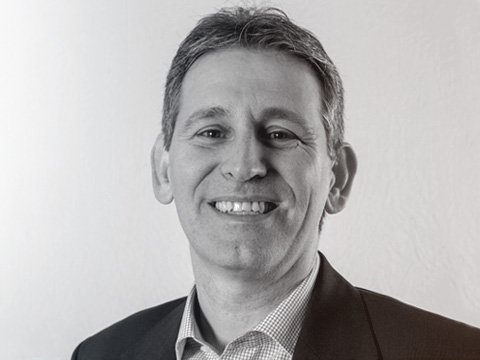



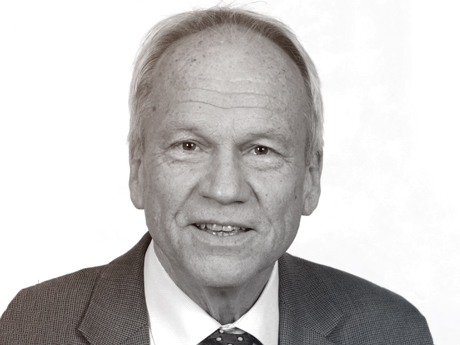
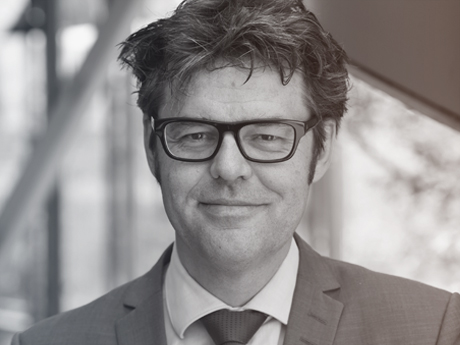

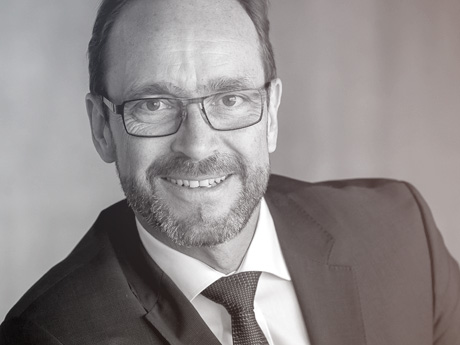
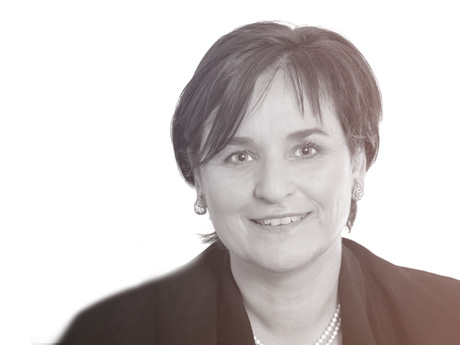
Programme social
Durant la conférence, nous offrons un programme social passionnant. Lorsque vous vous inscrivez à la conférence, vous pouvez sélectionner l’une des options suivantes:
12 avril, 18:00-22:00
Coûts:
Le dîner conférence sera servi dans l'ancien quartier industriel de Zurich "Zürich West". C'est à cet endroit, au dessus des toits de Zurich que les bananes étaient stockées et mûries avant d'être mises en vente, et ceci jusqu'en 2011. La Bananenreiferei est devenue un lieu où de nombreux évènements sont organisés. La terrasse du restaurant offre une vue panoramique sur la ville de Zürich.
14 avril, 8:45-17:00
A 8h45, nous nous rassemblerons à la gare centrale de Zurich où nous prendrons le train à destination d’Arth-Goldau. De là, les Rigi Bahnen et un second funiculaire nous amèneront jusqu’au Rigi Scheidegg, où nous ferons une belle randonnée de deux heures. Vers 12h30, ce sera l’heure d’un déjeuner bien mérité. Vous pourrez amener votre propre repas ou déjeuner à l’hôtel Rigi Kaltbad (le coût du repas de midi n’est pas inclus). Après le déjeuner, nous prendrons un funiculaire pour Vitznau, où nous commencerons un tour en bateau à couper le souffle à destination de Lucerne. De Lucerne, nous retournerons en train à Zurich, où nous arriverons aux environs de 17h.
Pour cette excursion au Rigi, il faut compter 95 CHF. Un minimum de 10 participants est requis. En cas de mauvais temps l’excursion sera annulée (par temps de pluie ou de neige, le voyage sera annulé). En cas d’annulation, les participants seront informés le 11 avril et seront rembourser de la somme de 95 CHF.
History comes alive on this guided city walk to the remains of ancient moats, foundations and alleys. Find out on what the now glamorous Bahnhofstrasse was built and how human waste was disposed of in Medieval times. There are plenty of surprises in store.
The cost for this guided walking tour is CHF 25 and a minimum of 15 people is required.
April 14, 11:00-13:00
Come face to face with Zurich’s past and present through a selection of buildings, stories and anecdotes. You too will be fascinated by the rich testimonies to bygone days which document the early international significance of the city.
The cost for this guided walking tour is CHF 25.